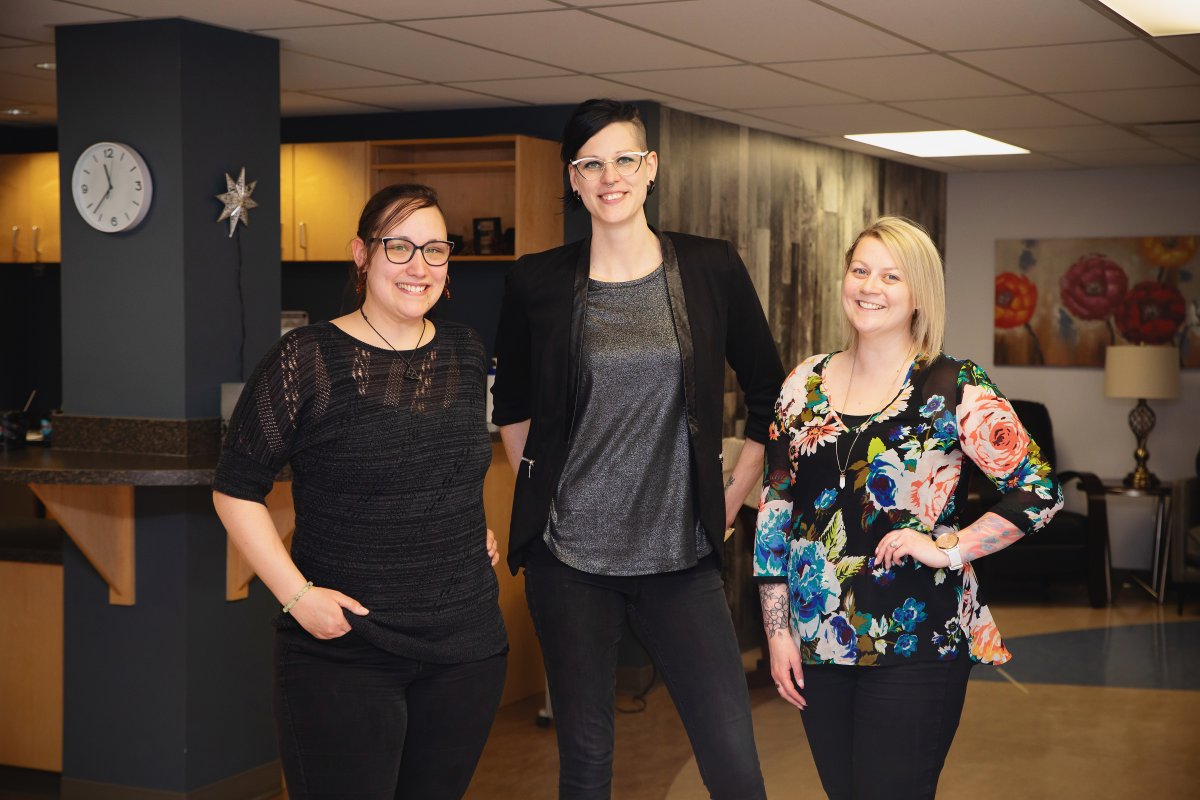When the pandemic first hit Canada in March 2020, the Morning Star drop-in centre for vulnerably housed women in Red Deer, Alta., was one of the few places that kept its doors open. The two-member staff worked hard to ensure it could continue to provide a safe space for the many women who rely on their services.

Now, with pandemic-related restrictions easing, a third trained staff member on board and word of mouth spreading, Morning Star is more important than ever.
In partnership with Catholic Social Services (CSS), the organization that runs the program, we take a look at how this community staple is making a difference.
How the centre acts as safe space
Morning Star program manager Jill Lanz first began conceptualizing Morning Star in 2018. At the time, CSS found that while there were drop-in centres serving the Red Deer community, none were exclusively for women.
That’s why, when the centre opened in fall 2019, it had two goals: to provide a space for vulnerable women to come and shower, grab food and form a community, and to also provide an outreach program that would help women connect with doctors, lawyers and other essential services.
“A lot of women we see are in a vulnerable and hard spot in their lives,” Lanz says. “When they drop in, they get their basic needs met, which is great, but what runs a bit deeper is actually making community connections.”
Some of those basics include laundry services and access to things like toiletries, menstruation supplies and clothing. The centre also offers support with housing programs, program referrals, access to counselling services and safety planning.

Get breaking National news
Lanz says that in the short two-and-a-half years the centre has been open, she’s seen lives drastically change. Now, those women have become huge supporters and advocates for the program in turn.
“We want to have a place where women feel safe and feel cared about,” she adds. “To know they matter. We had women visit in the pandemic who didn’t actually need anything that day, but wanted to come in and see us because of that connection to community.”
READ MORE: Alberta women’s shelters still forced to turn people away despite reduced calls in pandemic
Serving a community in need
Red Deer is the third-largest city in Alberta. Before the pandemic, it counted roughly 150 unhoused people and roughly 1,800 others who were at risk of losing their accommodations. Not only does Morning Star strive to make itself available to women from those populations, it also welcomes women from surrounding communities as well as any women facing barriers in their lives.
Many of those who frequent the centre have been sexually exploited or are at-risk, and some are dealing with barriers such as mental or physical health concerns, addiction or past trauma.
These client concerns mean staff require very specific training, so the centre cannot accommodate volunteers, despite the increased traffic.
But in spite of the challenges of providing services, Lanz says, Morning Star’s work is critical. “Programs come and go, so having a sustainable program is a huge thing — to continue to be present and in the community is really important,” she says. “We’re the only one. I would love to have more drop-in hours, of course, and it would be great to be able to continue to be a place where women come and feel safe and cared about and supported.”
READ MORE: ‘Six months to start healing’: Why women’s shelter services are so important right now
Why community support is essential
According to CSS CEO Dr. Troy Davies, Morning Star receives zero government funding. Instead, CSS relies entirely on donations from community members and fundraising initiatives through CSS’s fundraising arm, Sign of Hope, to cover the $250,000 annual cost of operating the drop-in centre.
“We could easily provide more services if the resources were there,” Davies says. “The reality is, the demand typically outstrips the amount of services we can provide.”
While Morning Star currently requires $250,000 to keep going on an annual basis, Davies adds that if more cash resources were to come in, the program could provide even more support. “We would love to be able to provide these women with more because their needs are so significant,” he says.
Although Morning Star occasionally puts a call-out for in-kind donations on Facebook, it’s not the type of centre that can continually take in donated items due to staffing, space and privacy issues.
“Right now, if people are concerned about vulnerable women in Red Deer, the number one way they can help us support these ladies is through financial donations,” Davies says.
Interested in supporting Morning Star’s work? Visit Sign of Hope to learn more and to donate to Morning Star now.

